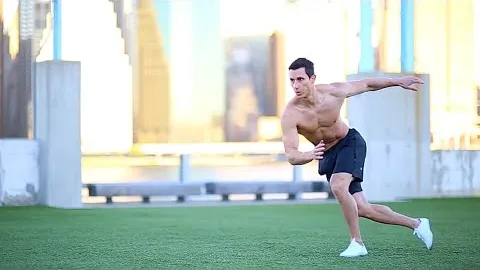
Speed skating is not for the faint of heart. It requires a unique combination of strength, agility, and mental focus. Speed skaters push themselves to the limits to achieve remarkable speed and endurance on the ice. In this article, we will explore the various exercises and training techniques that speed skaters use to develop power, balance, and speed.
Before delving into these exercises, it is crucial to understand the importance of building a solid foundation in speed skating. As with any sport, proper technique and form provide the basis for success. Therefore, it is vital for speed skaters to devote time to mastering the fundamental movements and postures specific to the sport.
To be an effective speed skater, one must possess a strong and stable core. The core muscles play a crucial role in generating power and maintaining balance. Core exercises such as planks, Russian twists, and bicycle crunches are great for strengthening these muscles. Implementing these exercises into your training routine will undoubtedly enhance your speed skating performance.
The lower body is the powerhouse for speed skaters. Exercises that target the quadriceps, hamstrings, glutes, and calves are essential for developing speed and power on the ice. Squats, lunges, leg presses, and calf raises are just a few examples of exercises that can effectively strengthen these muscles.
Plyometric training is a popular method used by speed skaters to increase their explosive power. By engaging in exercises that rapidly stretch and contract the muscles, speed skaters can generate more power with each stride. Plyometric exercises such as box jumps, bounds, and skater jumps can greatly enhance a skater's ability to accelerate and maneuver on the ice.
Speed skating requires not only short bursts of explosive power but also the ability to sustain high speeds for extended periods. Interval training is an effective technique that speed skaters employ to improve their cardiovascular endurance and stamina.
HIIT involves alternating between intense bursts of exercise and shorter recovery periods. For speed skaters, this could mean sprinting at maximum effort for 30 seconds, followed by a 1-minute rest period. Repeating this cycle for several sets will significantly enhance both aerobic and anaerobic capacity.
In addition to HIIT, speed skaters also incorporate longer, steady-state cardio sessions into their training regimen. These endurance-building workouts, such as long-distance running or biking, help skaters develop the stamina needed to maintain speed throughout a race.
Speed skaters often engage in cross-training activities to improve their overall performance. By diversifying their training routine, they not only prevent boredom but also target different muscle groups and develop a well-rounded skill set.
Supplementing speed skating with strength training exercises can help improve overall power and stability. Activities such as weightlifting, resistance band exercises, and bodyweight workouts can enhance muscle strength, prevent injuries, and ultimately contribute to improved speed skating performance.
Speed skaters rely on their ability to maintain proper form and execute swift movements on the ice. Incorporating flexibility and mobility exercises like yoga, Pilates, or dynamic stretching can help improve range of motion, prevent muscle imbalances, and enhance overall skating technique.
Speed skating requires intense mental focus and concentration. Implementing mental training techniques into your routine can have a significant impact on your performance.
Visualization is a technique used by many athletes to enhance their performance. Imagining yourself skating with perfect form, speed, and agility can help develop mental pathways that translate into physical execution on the ice.
Practicing mindfulness and meditation techniques can help speed skaters stay present, focused, and calm during high-pressure situations. These practices can also improve recovery, reduce stress, and increase overall well-being.
In conclusion, speed skating is a demanding sport that requires a holistic approach to training. From building a solid foundation through core and lower body exercises, to incorporating plyometrics, interval training, cross-training, and mental training techniques, speed skaters optimize their performance on the ice. By incorporating these exercises into your training routine, you can develop speed, power, endurance, and mental strength essential for mastering the art of speed skating.
If you're looking for a gym, fitness club or yoga studio, you've come to the right place.
You can find information about gyms in your area. Browse catalog of gyms and find gyms with classes which are you looking for.
On gym page you can find simple information like address, phone or website. You can find list of available classes. You can check availability of personal training or small group classes. On place page you can also see information about open hours.
You can find gyms near you with amenities, courts, studios and equipments.
Use our map to find gym at your city or district.
In Gym Navigator you can find list of exercises with movies for many body parts.
You can browse exercises catalog and find exercises the best of you.
You can also find exercises grouped into workout plans, which you can use to improve you body. Each routine show you exercises one by one and give you possibility to count you progress and count down rest time.